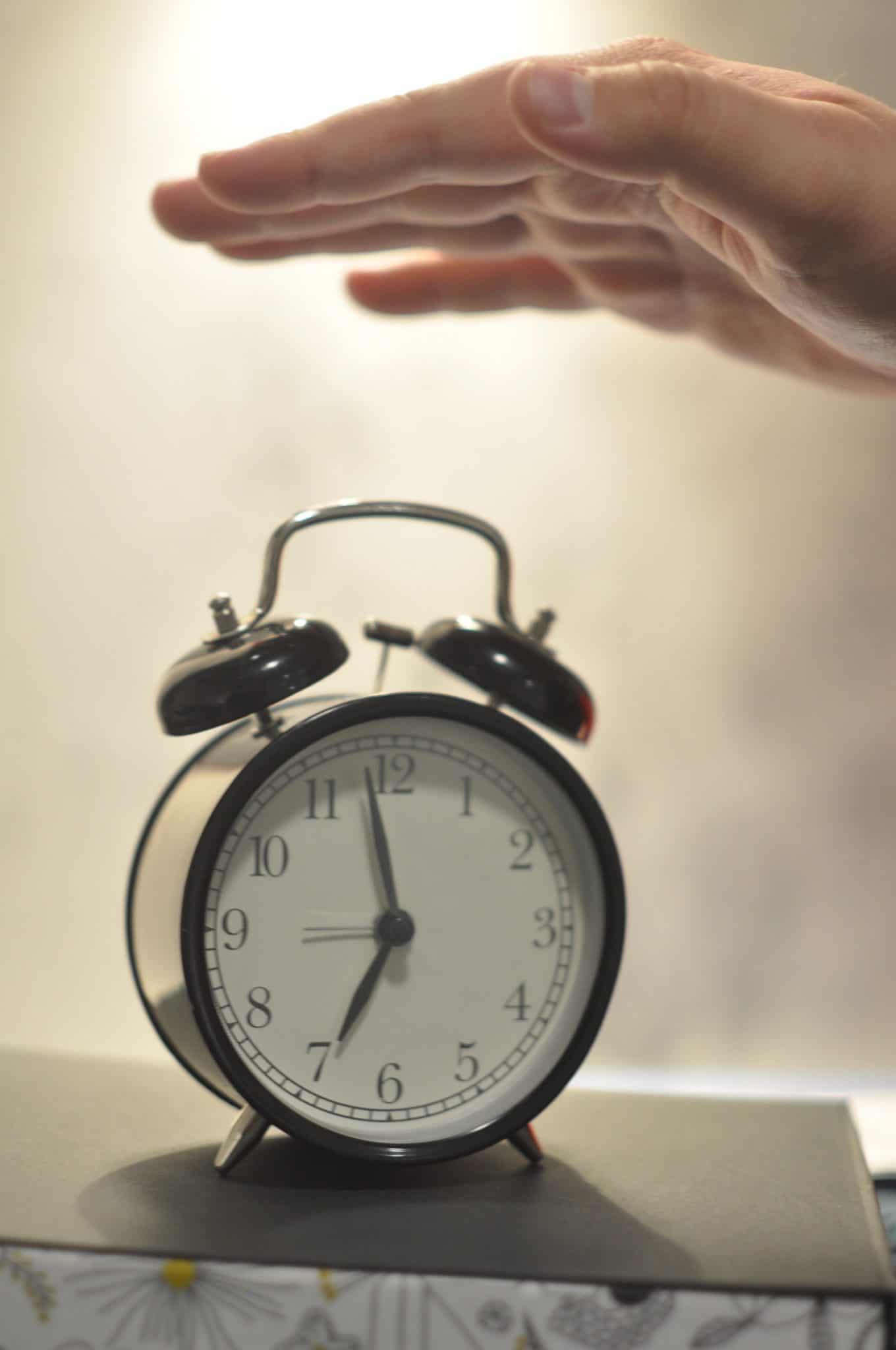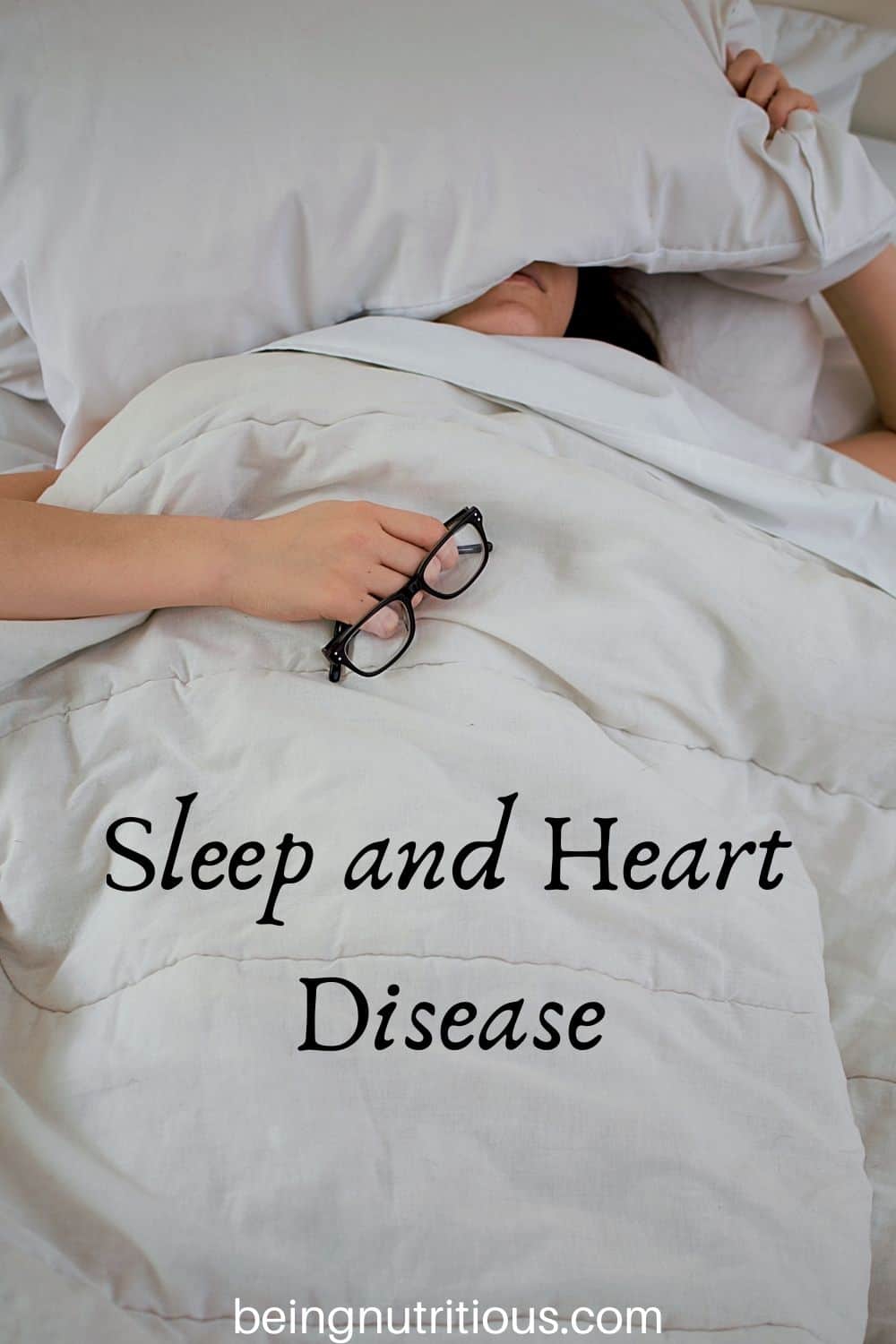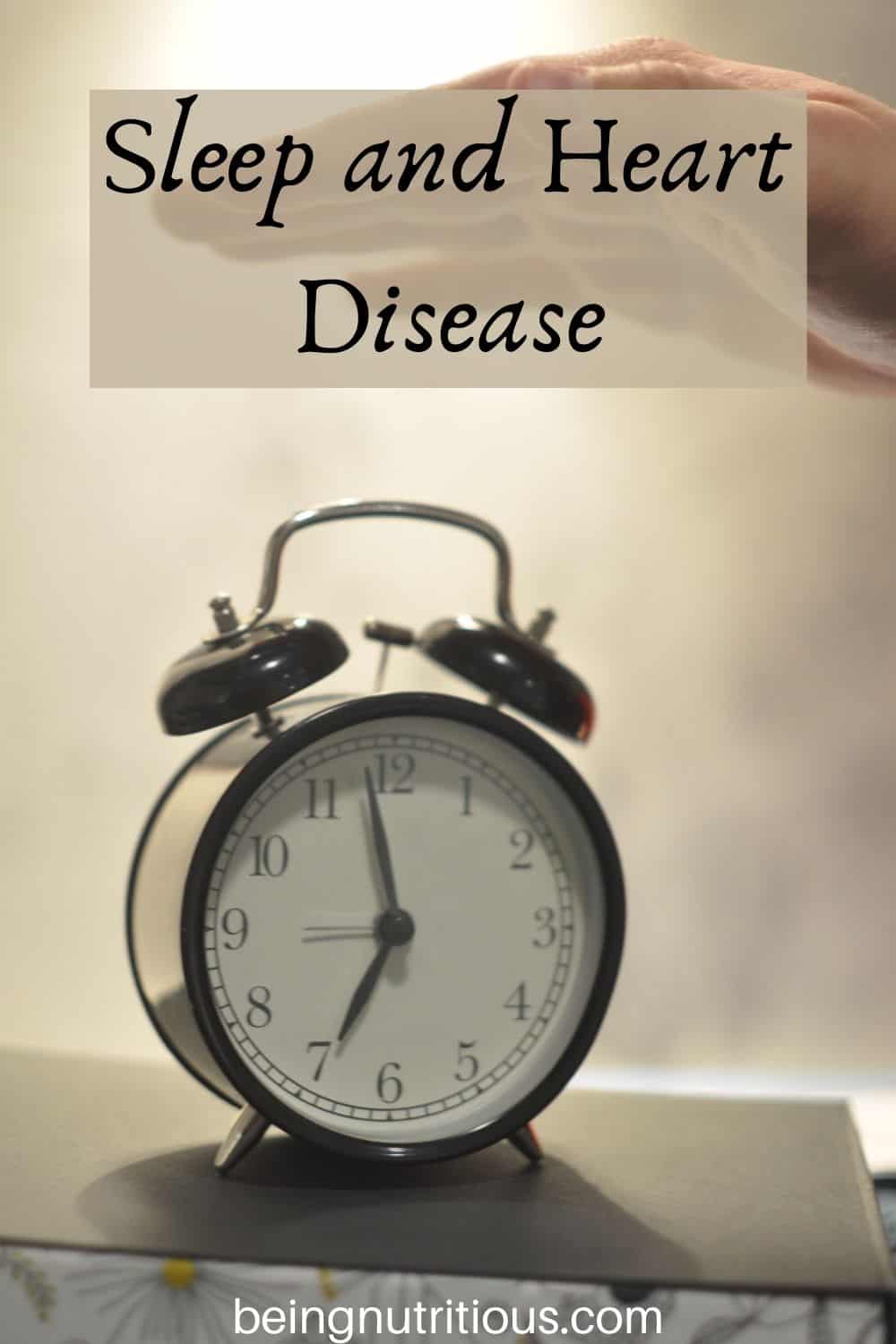You know that sleeping long enough and well enough is important. If you don’t get enough sleep, you feel groggy and have a hard time getting through the day. You know it can impact your ability to operate a motor vehicle and your ability to think clearly at work. But do you know not getting enough good quality sleep can lead to heart problems? The link between sleep and heart disease is clearer than ever, and yet, people are sleeping less than ever!

How much should you sleep to prevent heart disease?
The National Sleep Foundation recommends 7-9 hours of sleep per day for adults (1). While this is a recommendation for healthy people, it is no different to prevent heart disease or myriad other conditions.
Yet, more than a third of the US adult population report sleeping less than 7 hours per night (2). How many hours of sleep do you usually get?
How does sleep prevent heart disease?
While there’s not a consensus on exactly how this works, we do know that a lack of sleep can interfere with many bodily processes. Sleep deprivation can interfere with glucose metabolism, which can lead to insulin resistance, increasing your risk for both type 2 diabetes and heart disease (3).
It is also well known that sleep deprivation can increase hunger and appetite, leading to increased eating, and usually, weight gain. People with overweight or obesity are also at an increased risk of heart disease. Being overweight or obese can also increase your risk for developing obstructive sleep apnea, which further disrupts restful sleep, and increases the risk for heart disease (4).
Sleep deprivation has been associated with myocardial infarction (5), coronary heart disease (6), high blood pressure (7), and stroke (8).

How to Get a Good Night Sleep
There are many reasons why people might not sleep as much or as well as they should. However, there are two main categories: lifestyle choices and medical conditions. Lifestyle choices are things like not eating well, lack of exercise, using excessive caffeine or alcohol, and device use. Medical conditions like insomnia, COPD, and sleep apnea can directly interfere with sleep, while a variety of medications for other conditions may also contribute to sleep disturbances.
Sometimes, medications are needed to allow for more restful sleep, but here are some ways to help yourself get a better night sleep without (or in addition to) medications:
- Don’t nap during the day. Even if you feel very tired, napping can interfere with your ability to fall asleep at night.
- Create a relaxing bedtime routine, and do it every night. This will not only help you to relax, it will cue your body to start gearing down for sleep.
- Turn off screens about an hour before bedtime (ideally two hours). The blue light emitted from devices can interfere with your circadian rhythm. You can also change the settings to “night shift” mode after a certain hour. “Screens” include TVs, computer monitors, laptops, tablets, and phones.
- Do something relaxing right before bed, like reading a book or magazine, taking a warm bubble bath or shower, or meditating. Avoid activities that may agitate you, like reading the news, watching an action movie, or having an argument with your spouse.
- Avoid caffeine in the evening. Caffeine has a long half life, meaning it can have an effect for hours after you consume it, even if you don't feel "amped up". Some people also just take longer to metabolize it. Try cutting caffeine off around 2 PM and see how you feel.
- Avoid using alcohol to help you sleep. Having a drink in the evening is fine, but drinking more in effort to get to sleep will usually backfire. Alcohol-induced sleep is not restful or restorative sleep.
- Keep your bedroom neat and tidy. Clutter can induce anxiety, which is not the emotion you want right before bed!
- Keep your bedroom cool at night. Around 65 degrees Fahrenheit is considered an ideal sleeping temperature.
- If you’re having trouble sleeping, and keep tossing and turning in bed, get up and go do something relaxing for a bit. Try not to turn on lights or devices during this time. Perhaps try meditation, journaling, or reading a book (with low light if needed). Then return to bed when you feel sleepy.
- Exercise regularly, but not within 2 hours of bedtime if you have trouble falling asleep afterward. Start with going for a walk if you’re not sure where to start.
- Have a snack with healthy carbohydrates. Carbohydrates are needed to produce serotonin, a hormone that helps with sleep. Try something like a banana or other fruit, whole grain toast with peanut butter, a glass or milk, or some popcorn. A small snack only, as having a full stomach can inhibit sleep.
- Try not to eat within 2 hours of bedtime. If you must, make it a small snack (recommendations in previous bullet), so you’re not disrupting your sleep with a full stomach.
- If you struggle with ruminating thoughts as you try to fall asleep, keep a notebook and pen beside your bed. When a thought crosses your mind, write it down, with the promise to revisit it in the morning. This can help symbolically get it out of your mind.
- Practice relaxation techniques throughout the day such as deep breathing, yoga, meditation, and visualization. These can also be included as part of your nighttime routine.
If you continue to have trouble getting to sleep or staying asleep, make sure to see your doctor. Do you have any tried and true methods to getting a good night sleep? Do you have a question about sleeping well? Let me know in the comments.



Dianna Reynolds says
Interesting article Laura. I did not know that about the blue light on TV's. I watch TV a lot
in bed before I go to sleep. Thank you for the information!